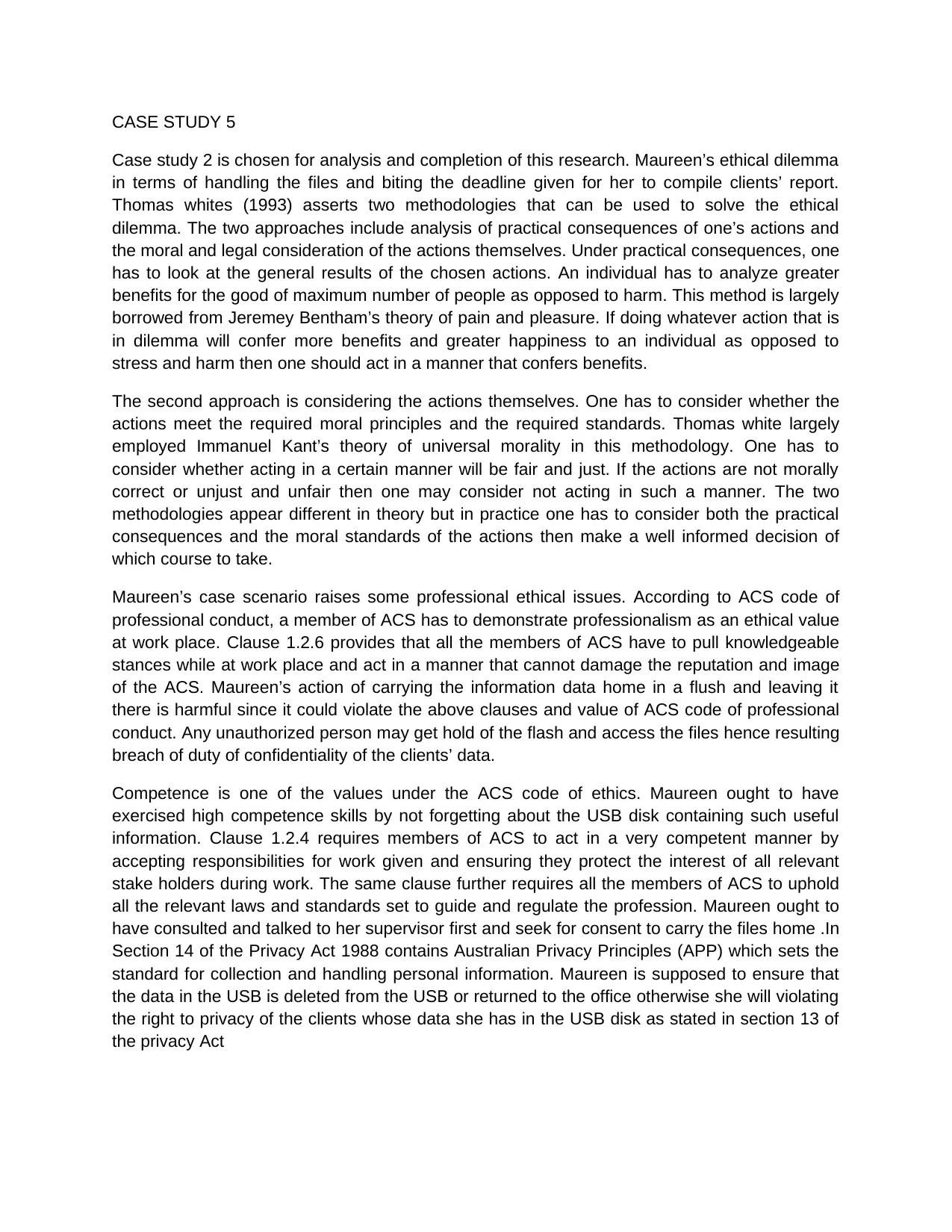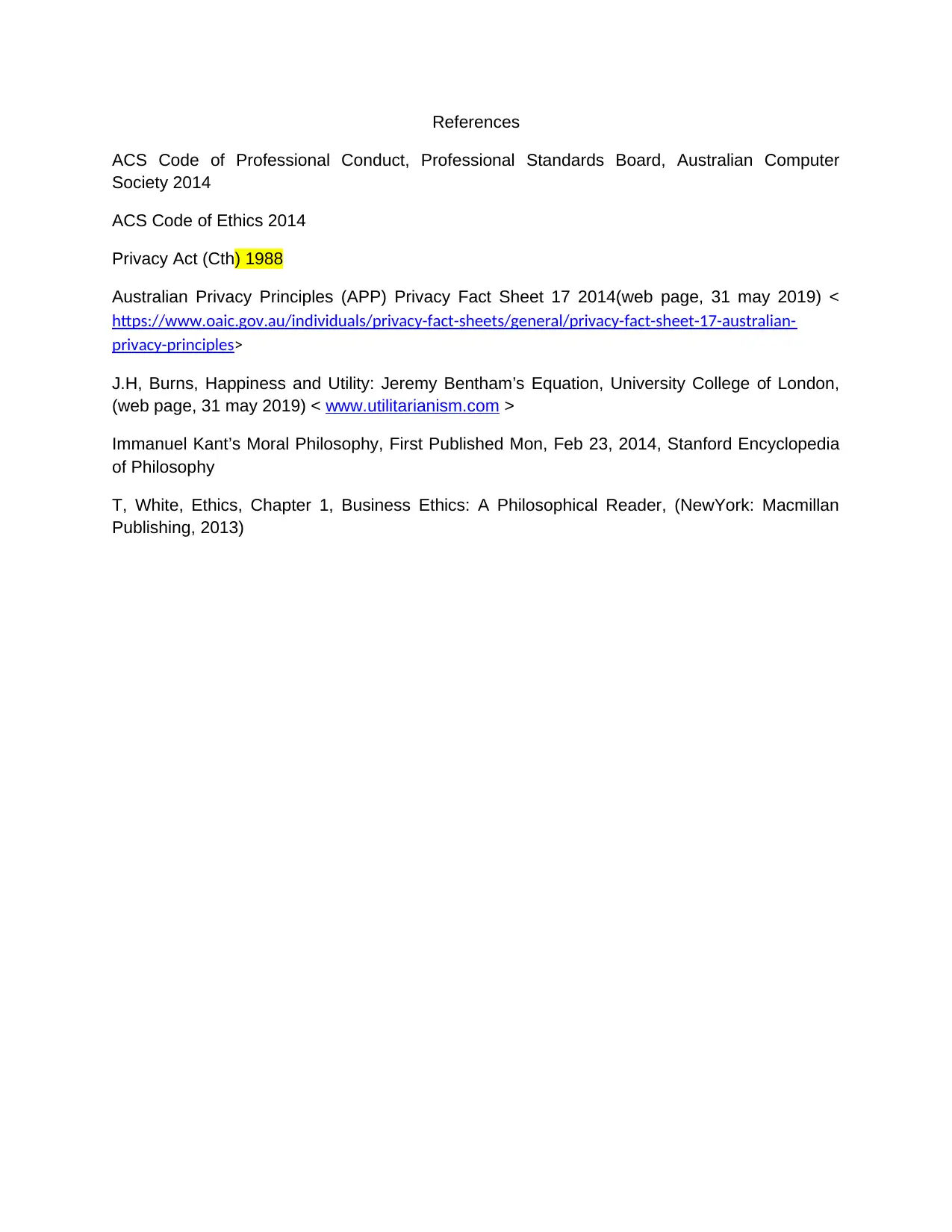Ethical Dilemmas in Data Handling: A Case Study Analysis
VerifiedAdded on 2023/03/30
|2
|645
|138
Case Study
AI Summary
This case study analyzes Maureen's ethical dilemma in handling client data within a government state department. The assignment examines the ethical issues related to Maureen's actions, including carrying sensitive client data home and the potential breach of confidentiality. It applies Thomas White's methodologies of practical consequences and moral standards, referencing the ACS code of professional conduct and Australian Privacy Principles. The analysis highlights Maureen's failure to uphold competence, professionalism, and data privacy, emphasizing the importance of seeking consent, adhering to legal standards, and protecting client information. The case study references relevant literature including ACS code of Ethics, Privacy Act 1988, and works by Jeremy Bentham and Immanuel Kant.
1 out of 2







![[object Object]](/_next/static/media/star-bottom.7253800d.svg)